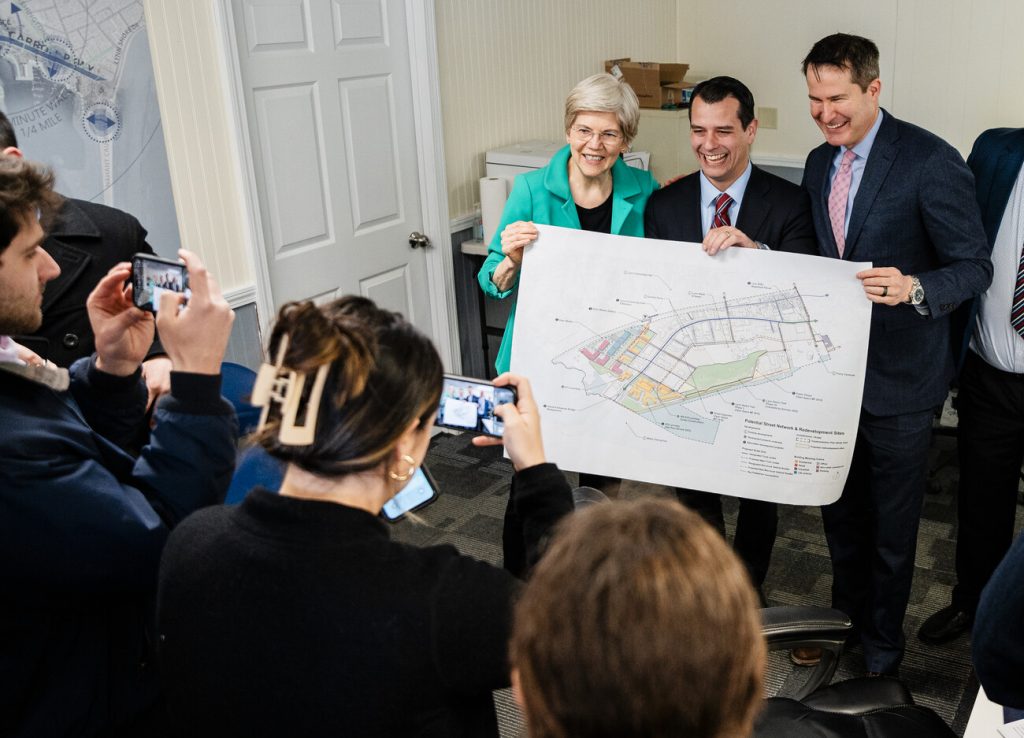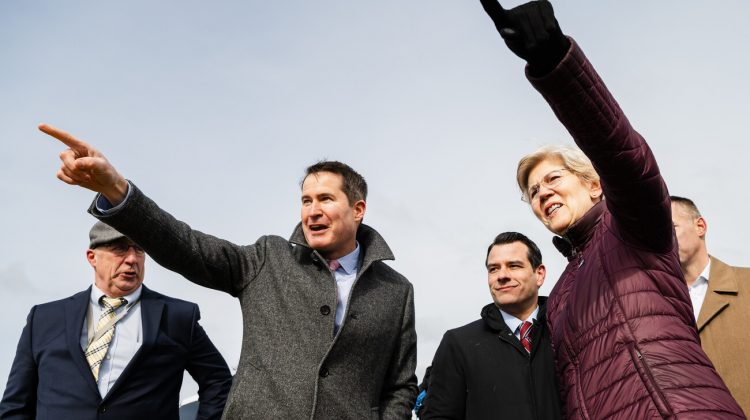LYNN — The Charter Development office at the Lynn Harbor Park project site was filled with suits and support on Friday, as elected officials, including U.S. Sen. Elizabeth Warren and Mayor Jared Nicholson, celebrated a $500,000 federal grant that will be used to reimagine infrastructure in the city.
In September 2023, Warren wrote a letter of support for the Reconnecting Communities and Neighborhoods Grant. In March 2024, it was distributed by the Biden administration.
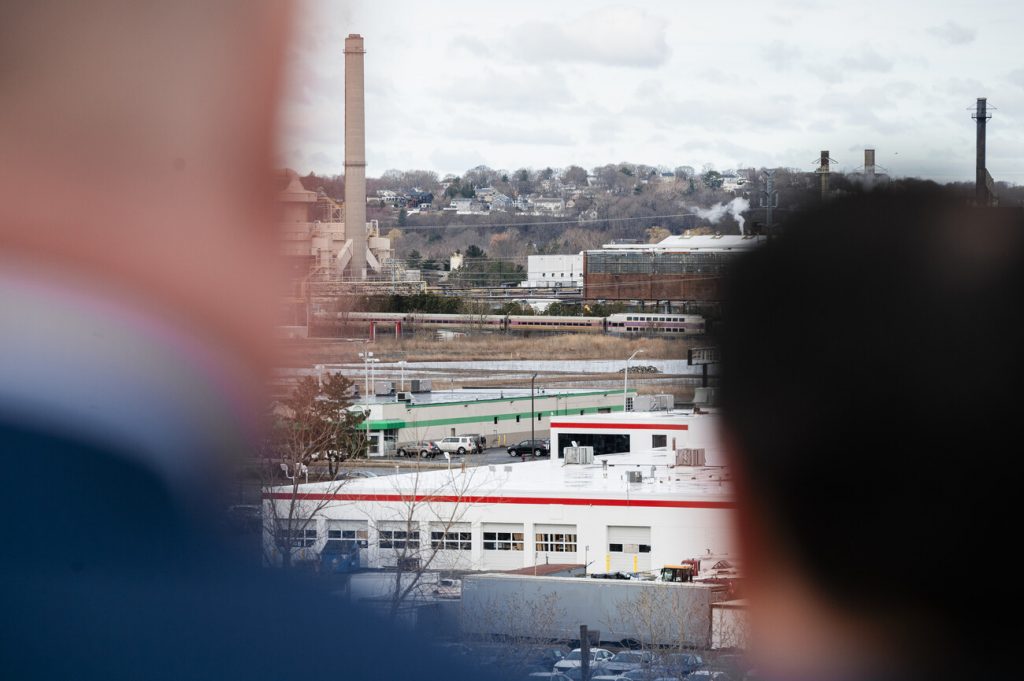
The RCN grant will fund a planning study to enable developments for the private River Works Commuter Rail stop, design a street network to improve public transportation in the city, and promote future mixed-use developments on the city’s shoreline.
The attendees gathered at the top of the River Works development site to discuss the impact of the RCN grant on the city’s future.
Warren said 12 years ago, former Mayor Thomas M. McGee sat her down at a local restaurant.
“(McGee) said, ‘It’s all about transportation.’ And he said, ‘Lynn is choking because we don’t have it. We can’t grow, we can’t prosper,’” Warren said.
She said that they worked together over time to try and solve the problem, but there wasn’t a lot of federal funding available.
“It was two years ago this month that we had a meeting specifically, again, about transportation through Lynn and throughout the area, and talked about the importance of electrifying the entire line, and what that would be,” Warren said.
Now, due to the grant, the city is finally able to move forward and implement ideas that have been discussed for years.
The plan involves reconnecting West Lynn and making transportation publicly accessible by transforming the waterfront.
Nicholson told Warren that the new station, proposed street network, and updated shoreline will each cost around $30 million.
He added that the city would also need federal support for the shoreline plan through policy and regulatory coordination and assistance with affordable housing for lower-income families.
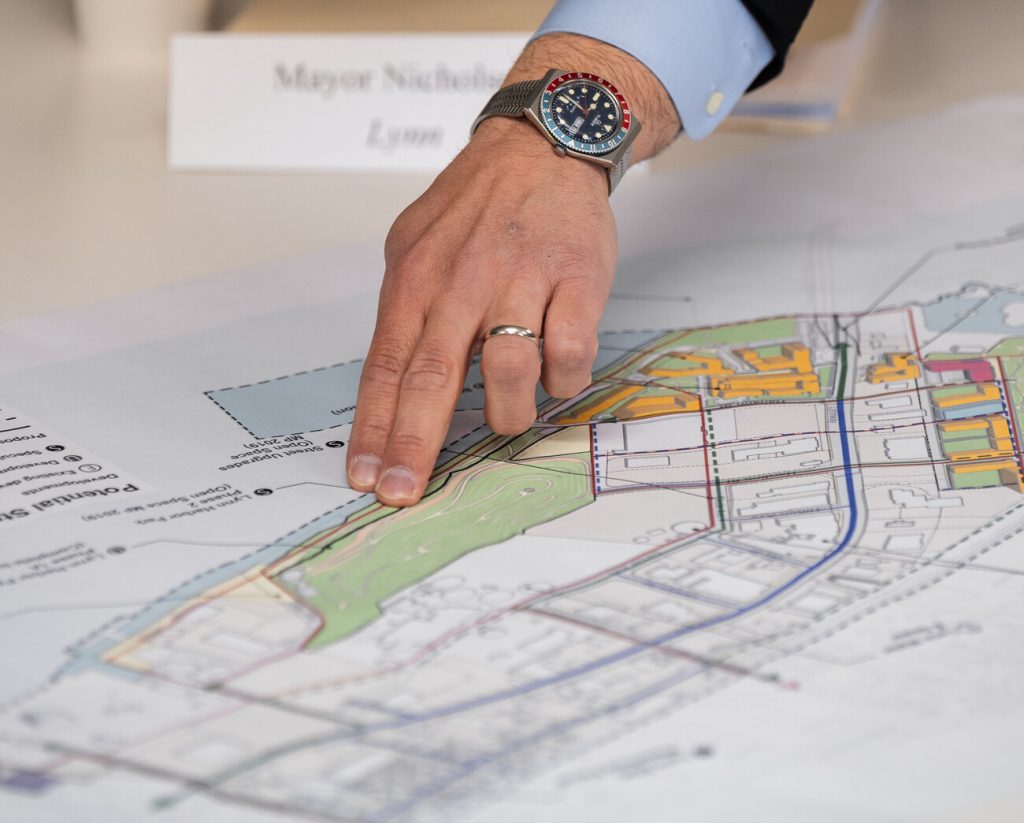
Nicholson said that the proposed street network could unlock more than 4,000 units of housing. He said that 2,500 of those units are already planned, with 15% qualifying as affordable.
“The challenge is, in order to produce sites that are affordable at the lower-income levels, that are deeply affordable, there needs to be government investment,” Nicholson said. “We made a strong investment through our federal ARPA (American Rescue Plan Act) funds, so thank you for that.”
He said the ARPA funds are not a recurring source of investment, so the city is looking for more funding to drive affordability.
“A major priority for me is federal investment in housing. And, it’s not the federal government to come in and say, ‘Okay, here’s the housing that has to be built.’” Warren said. “It’s the federal government to come in and say, ‘If you’ve got a plan to build housing, how can the federal government put in resources to help you add affordability, to add connectivity to other neighborhoods.’”
She added that housing is the next area where the federal government needs to make an investment.
“The fact that you are putting in at least 2,000 new housing units and room for more to come, is not only good for Lynn, it’s good for the Commonwealth,” Warren said.
Nicholson said this would also open up 1.7 million square feet of commercial space. Currently, only 8% of Lynn residents work in manufacturing, so this would also increase job opportunities in that sector, he added.
As the celebration concluded, those in attendance were optimistic about the city’s future.
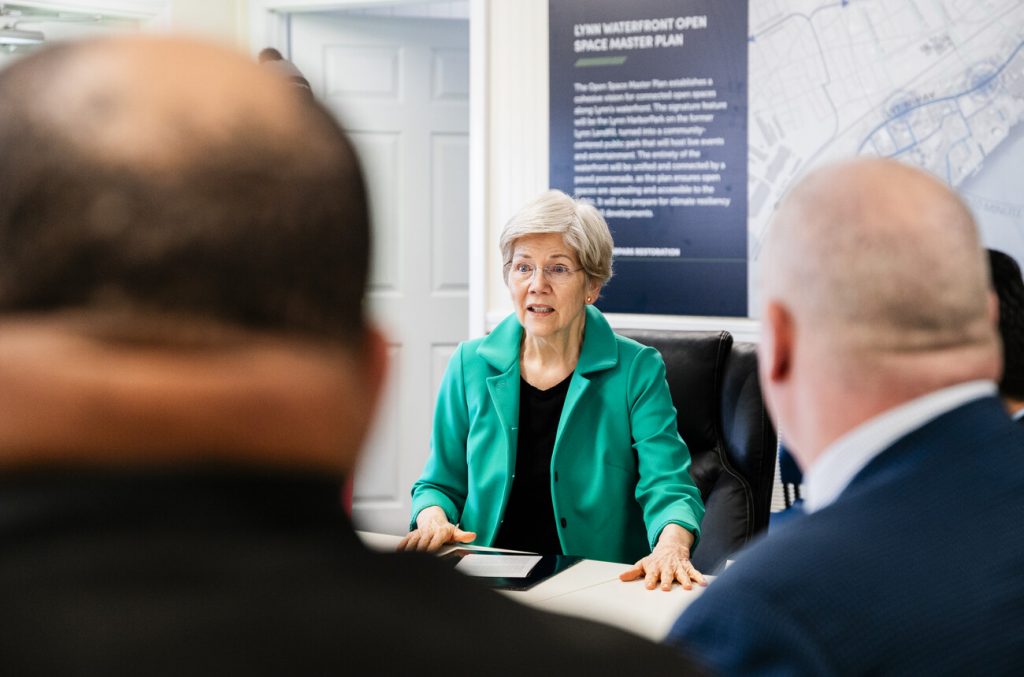
“The zip code you grow up in has a lot to do with where you end up,” Warren said.
Other public officials present included U.S. Rep. Seth Moulton, Secretary of Transportation Monica Tibbits-Nutt, state Sen. Brendan Crighton, state Reps. Jenny Armini, Dan Cahill, and Peter Capano, and MassDevelopment President and CEO Dan Rivera.
